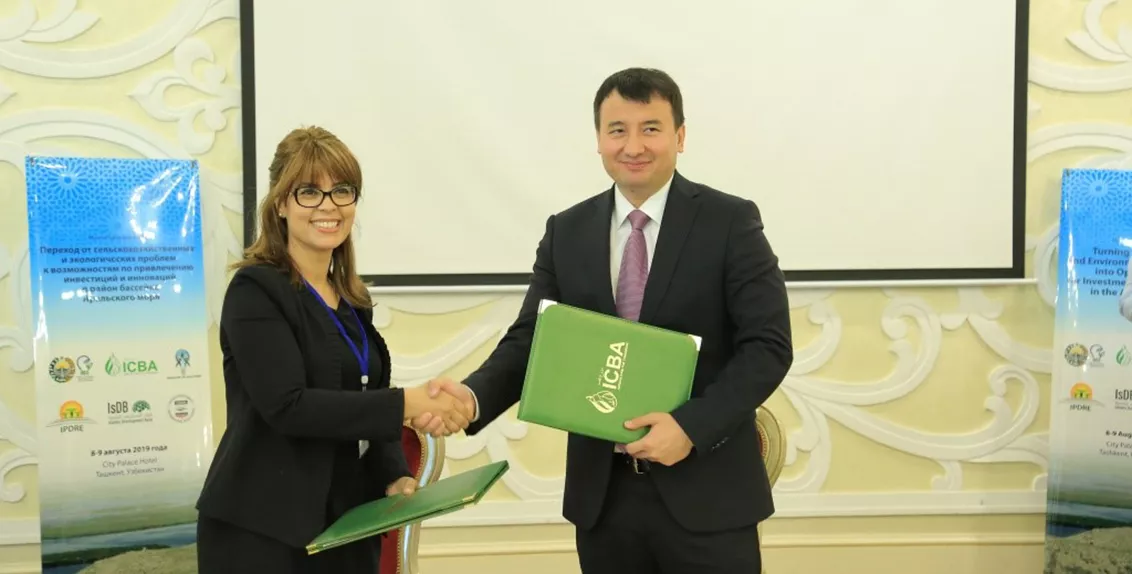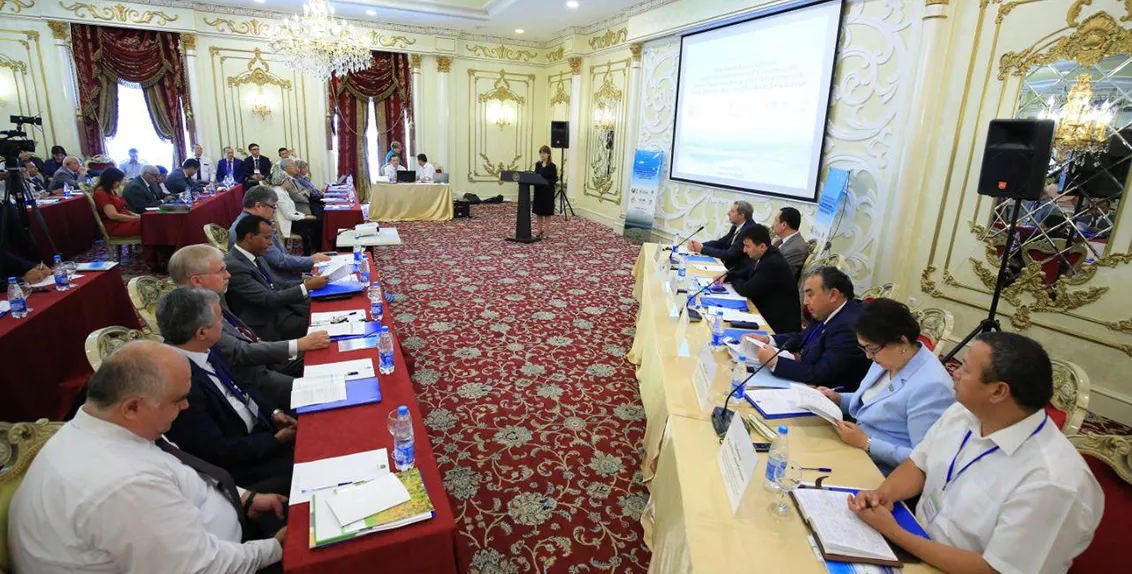ICBA forms partnership with Agriculture Ministry of Uzbekistan
8 August 2019
The International Center for Biosaline Agriculture (ICBA) and the Ministry of Agriculture of Uzbekistan agreed today to expand collaboration in Uzbekistan on sustainable agriculture and food security, among other things.
H.E. Mr. Jamshid Khodjaev, Minister of Agriculture of Uzbekistan, and Dr. Ismahane Elouafi, Director General of ICBA, signed a memorandum of understanding to this effect on the sidelines of a two-day international multi-stakeholder forum dedicated to the problems of the Aral Sea Basin.
The agreement envisages cooperation in developing and introducing innovative technologies and approaches in crop diversification, integrated crop-livestock-forestry systems, seed production and ‘farmer-to-farmer’ seed delivery programs, among others.
H.E. Mr. Jamshid Khodjaev, Minister of Agriculture of Uzbekistan, said: “The Aral Sea disaster is not a problem of one state or region, but of the entire world community. In this regard, I express gratitude to the ICBA leadership for actively involving the knowledge and experience of world-class experts in solving the problem.’’
Dr. Ismahane Elouafi, Director General of ICBA, commented: “We are delighted to formalize our long-running collaboration with the Ministry of Agriculture of Uzbekistan. This agreement will give further impetus to our collaborative work in the country and enhance our presence in Central Asia and the South Caucasus. We look forward to working with our national partners towards improving food security and nutrition and livelihoods of the most vulnerable rural communities in the country, particularly those living in the Aral Sea Basin, through innovative technologies and approaches.”
Under the agreement, the parties will also work on salinity management and improvement of land and water productivity.
Moreover, joint activities will focus on research on climate change adaptation and mitigation measures, environmental sustainability through evaluation of ecosystem services and resilience of agroecosystems.
ICBA will assist in devising policies and strategies on development of value chains for cash and food crops, including post-harvesting, food processing and marketing to ensure better livelihoods, food security and nutrition in rural areas.
ICBA will also support the development of capacity of national agricultural research institutions through knowledge sharing, training programs, seminars, conferences and collaborative research.
The agreement builds on the existing strategic partnership with the Government of Uzbekistan, specifically the Ministry of Innovative Development of Uzbekistan. ICBA and the Ministry of Innovative Development signed a memorandum of understanding in October 2018 to establish the International Innovation Center for the Aral Sea Basin (IICAS). As part of this collaboration, ICBA trained six specialists from the IICAS in early 2019 and continues to provide technical and scientific assistance to the Ministry of Innovative Development in operationalizing the center.
Titled “Turning Environmental Challenges into Opportunities for Investment and Innovation in the Aral Sea Region”, the forum attracted more than 80 delegates, including senior policymakers, representatives of international and regional development organizations, scientists, experts, and professionals from Japan, Kazakhstan, Kyrgyzstan, Tajikistan, Turkey, the United Arab Emirates and Uzbekistan.
ICBA organized the forum on 8-9 August 2019 in Tashkent, Uzbekistan, in collaboration with the Ministry of Innovative Development of Uzbekistan; the Islamic Development Bank; the Food and Agriculture Organization of the United Nations; the International Platform for Dryland Research and Education; the United States Agency for International Development; the Eurasian Center for Food Security; and the United Nations Development Programme.
During the forum, participants presented and discussed concrete examples and case studies of how science and innovation can help to address a wide range of problems in the Aral Sea Basin. As a result, they developed two proposals on drought management and integrated forage-livestock production systems. These proposals will be submitted to donors jointly with national partners.












